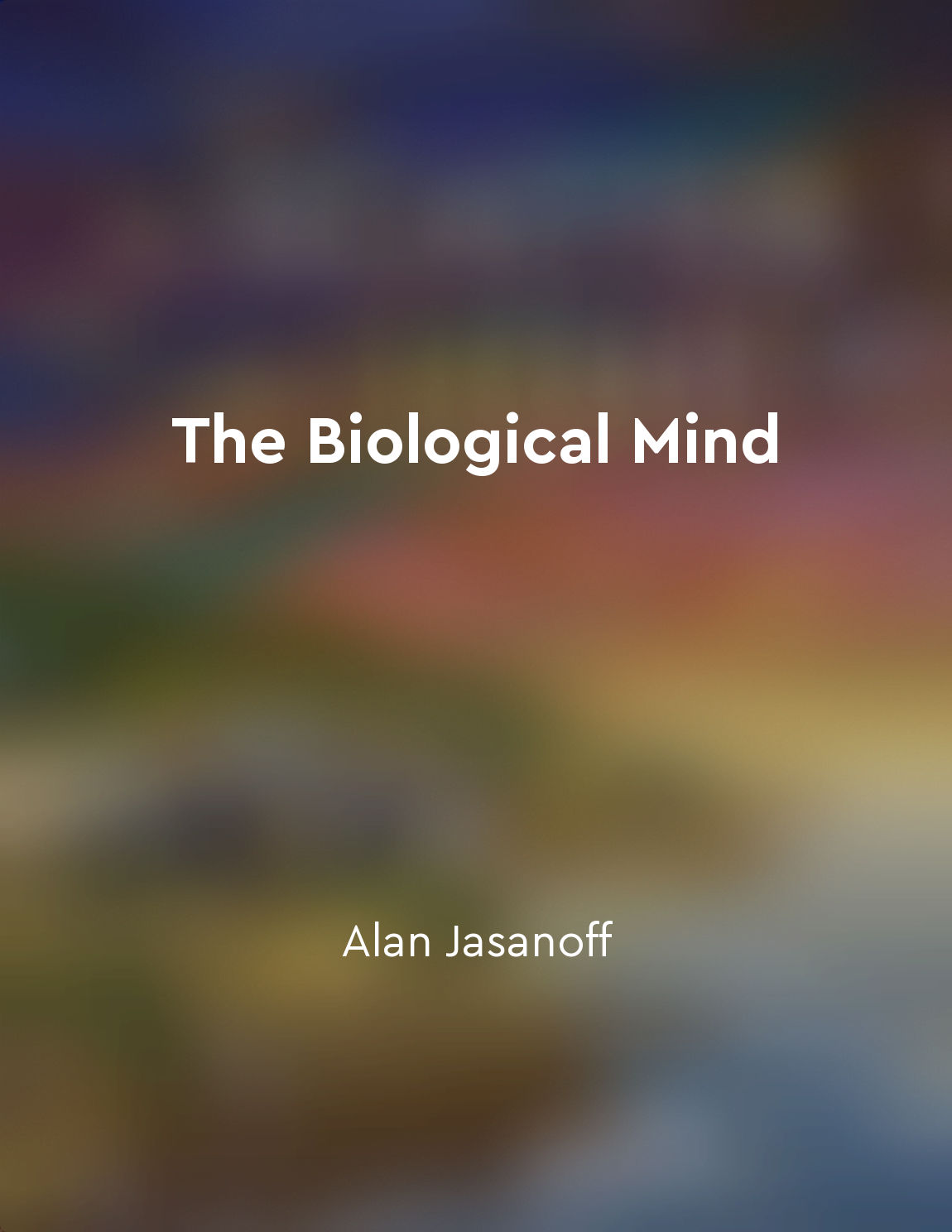Mental disorders can arise from disruptions in brain function from "summary" of The Biological Mind by Alan Jasanoff
Disruptions in brain function can be at the root of mental disorders. When the intricate balance of neural activity is disturbed, it can lead to a range of cognitive and emotional issues. The brain is a complex organ that relies on precise interactions between different regions to function properly. Even slight alterations in these interactions can have profound effects on mental health. Various factors can cause disruptions in brain function, including genetic predispositions, environmental influences, and even lifestyle choices. These disruptions can manifest in different ways, depending on the specific neural circuits that are affected. For example, disturbances in the prefrontal cortex may result in issues with executive function and decision-making, while disruptions in the amygdala can lead to problems with emotional regulation. Moreover, disruptions in brain function can also affect neurotransmitter levels, further complicating the picture. Neurotransmitters play a crucial role in transmitting signals between neurons, and any imbalance in these chemicals can have widespread effects on brain function. For instance, abnormalities in the levels of serotonin or dopamine have been linked to various mental disorders, including depression and schizophrenia.- They are rooted in the physical processes of the brain. By recognizing the biological underpinnings of these disorders, we can develop more effective treatments that target the underlying neural dysfunctions. This approach emphasizes the importance of viewing mental health issues through a biological lens, rather than attributing them solely to psychological or social factors. Ultimately, by addressing disruptions in brain function, we can pave the way for improved outcomes for individuals struggling with mental disorders.
Similar Posts

The brain's ability to adapt and compensate for damage is remarkable
One of the most astounding and awe-inspiring aspects of the human brain is its remarkable capacity to adapt and compensate for ...
Cultivating curiosity and creativity stimulates learning
Cultivating curiosity and creativity in children can have a profound impact on their learning and development. When children ar...
Cognitive behavioral therapy can reshape negative thought patterns
Cognitive behavioral therapy is a powerful tool that can help individuals reshape negative thought patterns. This type of thera...
Experiencing pleasure without orgasm can deepen intimacy
In the heat of passion, the urge for release often takes center stage. It's easy to get caught up in the pursuit of orgasm, the...
Understand the impact of dopamine on your brain
Dopamine is a crucial neurotransmitter that plays a significant role in how our brain functions. It is often referred to as the...
Darwin examines the evolution of humans
In the Descent of Man, Darwin posits that humans have evolved from a common ancestor with other primates. He delves into the in...
Personalized strategies are key to sustaining happy habits
To sustain happy habits, it is essential to understand that what works for one person may not work for another. This is because...
Selfawareness and self-regulation
Self-awareness is the ability to recognize and understand our own emotions, thoughts, and behaviors. It involves being in tune ...

Our brains are wired for seeking pleasure and avoiding pain
Our brains are designed to constantly seek out pleasure and avoid pain. This fundamental wiring is deeply ingrained in our neur...

Ovaries produce eggs and release hormones in females
The ovaries are the primary female reproductive organs. These almond-shaped structures are located in the pelvic cavity, one on...


